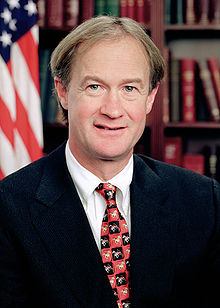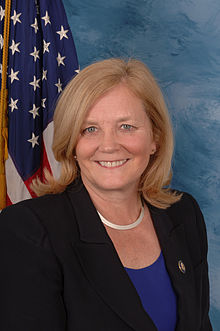**UPDATED 3-3-12** This post has been updated with additional commentary and for grammatical corrections.
"You are not going to go off on a tangent about Olympia Snowe and Maine politics now," you are probably thinking, right? Well, yes and no, but the reasons run deeper than merely dissecting a nearby, but ultimately non-Bay State community.
"You are not going to go off on a tangent about Olympia Snowe and Maine politics now," you are probably thinking, right? Well, yes and no, but the reasons run deeper than merely dissecting a nearby, but ultimately non-Bay State community.
 |
| Sen. Olympia Snowe (wikipedia) |
On Tuesday Maine Republican Senator and today's world moderate Olympia Snowe announced that she would not run for reelection. The move sent shockwaves through Washington as Republicans, confident that the Senate would be their, suddenly confronted their likely loss of what would have been an easy win had Snowe stayed in. The move also scrambled Maine politics as both Democratic congressmen from the state, two former governors and others consider the Senate race, while a dozen or so other politicians circled the Congressional seats of those two Democrats.
There was a time when Snowe may have been the most liberal/moderate Republican in the Senate. Certainly after Lincoln Chafee, now Rhode Island's governor, was kicked out of office by Ocean Staters, she may have been. Arlen Specter of Pennsylvania may have edged her out in that category, but he became a Democrat in 2009. However, over the last few years and especially in 2011, Snowe had taken a rightward-turn that should have shocked even her longest-standing supporters. Still, Snowe provided critical votes on the stimulus, Dodd-Frank (without demanding banks be coddled as a certain senator to be named soon) and for both of President Obama's nominees to the Supreme Court.
In a statement about her decision to retire, Snowe, 65, was confident she would win reelection (a fact most took for granted), but felt that in the short term the partisanship of Washington led her to beg off another six years in the Senate. While media outlets were not wrong in noting her distaste for how the health care bill passed into law, it seemed hard to not see the greater partisan demons were within her party. Between the increased pandering to tea partyism to likely incessant threats from Madman Mitch, Snowe probably had more than enough from her Republican "colleagues."
Perhaps as a demonstration of that, Snowe became the sole Republican to vote for the absurdly broad Blunt Amendment today, which if made law, would allow ANY employer to deny coverage for ANY health care for reasons of "moral conviction," an undefined term. Ironically, her fellow Maine Republican, Susan Collins, voted for the bill, breaking that senator's record of being the most bipartisan senator of this Congress when it comes to sane votes.
 |
| Mitch McConnell, likely before creating another Horcrux (Image of Voldemort from Wikipedia) |
The radicalism of GOP votes stepped up considerably after the Democrats narrowly took back the Senate in 2006. It is our theory that when Mitch McConnell became the leader of his caucus after Bill Frist left the Senate, he was furious that he would not be Majority Leader. Why? Because early on in 2005, he knew he would become Majority Leader. Republican had just triumphed after Bush's reelection. How could things go wrong? Frist was going to keep his promise to serve only two terms (having first been elected in 1994) and therefore McConnell, then Senate Majority Whip would ascend. Then George W. Bush's second term happened. Republicans were falling left and right in 2006 including just enough senators. McConnell's dreams were crushed. But rather than become a cooperative Minority Leader, he became a vindictive one and pushed the Senate into becoming a parliamentary body where members are forced or threatened to remain in lockstep with leaderships.
This kind of behavior is virtually necessary in Canada or the UK and acceptable in the House of Representatives, but never intended for the Senate as Snowe's column illustrates. Democrats are not blameless in this regard, but it seems that McConnell took a behavior that had begun to creep into the Senate in 1980 and 1994 and used it wholesale. Democrats, rightly or wrongly, felt they could not unilaterally disarm and fought fire with fire. Thus the Senate of today.
 |
| RI Gov. Lincoln Chafee (I) (Wikipedia) |
Before Lincoln Chafee's booting from the Senate, Snowe, Collins and Chaffee were often derided as the "New England Band of Sisters." They were all to the left of most Republicans, again Arlen Specter being possibly the chief exception. However, when the band of sisters was whittled down to the Maine Twins, the independence began to wane. After voting with Democrats on a few key issues, Snowe and Collins stuck closer to McConnell. Snowe and Collins may have hoped to have a replacement for Chaffee when Scott Brown joined them in early 2010, but were probably nonplussed in the end.
After the 2010 elections, Snowe voted with McConnell on votes to gut the Clean Air Act and against even modest tax increases to pay for a new jobs bill (Yes, Collins actually did vote for a tax increase last year). She and Collins both opposed the nomination of Richard Cordray (or anyone else) to head the Consumer Financial Protection Bureau on complaints about the bureau's structure, despite voting for its creation. The theory had to be that she could get teabagged from the right in the primary and so she was protecting herself. However, after getting the support of the state's Tea Party governor, Paul LePage and fielding virtually no challengers, that possibility seemed unlikely. Indeed, before this week nobody, neither Democrat nor Republican were thought to be able to beat her.
Snowe's decision to retire is as much about a breaking point in the partisan madness including voting for things she would never had considered five years ago like the Clean Air Act or refusing to raise the debt ceiling. She likely felt she could no longer vote how she wanted. Still, she has an impressive bipartisan record that goes back to 1994 which, incidentally, was the year Republicans took back Congress under Bill Clinton.
 |
| Sen. Scott Brown (WMassP&I) |
Despite being rates more partisan than Scott Brown, Snowe's record has consistently been less cynical than Brown's. With the exception of Dodd-Frank, which Brown personally weakened to the benefit of financial firms that donated to his campaign, Brown's most notable "bipartisan" votes, came after Elizabeth Warren emerged as a strong challenger to Brown, including the debt ceiling and Richard Cordray. Conversely, he voted against small business loans and Elena Kagan at a time when he had no opponent.
Many have questioned how much it really matters than moderates have left the Senate. The mainstream media bemoans it (while often misapplying who really is a moderate) while others argue it has become a myth. The latter are right in the respect that if moderates like Snowe were really all that great then they would have stayed moderates on a host of issues post-2006. Now to some extent, with the filibuster goal post moved considerably with the Democrats' loss of six seats in 2010, they mattered less. However, what is really less sad about moderate is that they seemed unable or unwilling to actually lead by example.
 |
| Sen. Susan Collins (left) & Sen. Snowe (wikipedia) |
When Robert Byrd was on his deathbed, Democrats were forced to wheel him in to pass a Defense bill to meet the filibuster point, while Collins and Snowe waited until Dems reached 60 votes. Another perhaps more pertinent example is Scott Brown. While bemoaning the nonsense of the debt ceiling crisis, Brown made no apparent effort to lobby his fellow Republicans back to sanity even as he voted for it. Perhaps we are now moving the goal posts, but bipartisanship cannot be measured by merely voting one way or another. Rather it should be measured by your dedication to the issue. Saving the country from fiscal default seems fairly patriotic, but either Brown's "independent voice" did not matter or he did not try.
There was a time when it seemed as though both Snowe and Collins did try. Collins, with Snowe thought to back her up, led the charge to repeal Don't Ask, Don't Tell, ultimately bringing more Republcians on board, including, inexplicably North Carolina's Republican Senator. Scott Brown, by comparison, caboosed his way into that story. But ultimately partisanship became too much for Snowe and Collins. Maybe their commitment to moderation was tempered by the fact that they are women, a trait that they they share, to much smaller extent, with retiring Texas Republican Kay Bailey Hutchinson and Alaska Republican Lisa Murkowski. However, New Hampshire Republican Kelly Ayotte breaks that mold along with any semblance of separating her religion from her official duties.
If there is any greater evidence, despite talk of endorsing a Republican, that Snowe is more upset at her party it has to do with her timing. A Democratic win in Maine is not a slam-dunk, but with the state's blue hue, decent Democratic and only two weeks to gather signatures and form a campaign, the situation favors the Dems.
If there is any greater evidence, despite talk of endorsing a Republican, that Snowe is more upset at her party it has to do with her timing. A Democratic win in Maine is not a slam-dunk, but with the state's blue hue, decent Democratic and only two weeks to gather signatures and form a campaign, the situation favors the Dems.
 |
| Cong. Chellie Pingree (wikipedia) |
Indeed, Maine is in the midst of a political maelstrom. After a couple of days where both of the state congressman took out Senate papers, Mike Michaud, the more conservative of the two decided to stay in the House race. Chellie Pingree, who represents Portland, a much more liberal district is still looking at the race as is the former Democratic governor John Baldacci, but he left on unpopular terms. The wild card is whether an independent will get in the race. Angus King the former governor and Eliot Cutler, a 2010 gubernatorial candidate, could shake up the race considerably. However, and this is not a dig at independents, in the case of King, it does seem like it may be time to let somebody else have a turn at the wheel.
King is reported to have said he would only run if he thought he could do something as if being an independent will really change the partisanship. It takes a certain degree of arrogance to think you can change things where others have failed. Notably, the Maine's politics are not like DC's. Republicans, despite winning the State House in 2010, have not run wild in part because their leadership has opposed the most radical elements of Gov. LePage's agenda. That is why King was successful as governor. Maine Republicans are not crazy and he would quickly find the novelty of his independence is unlikely to change Washington Republicans when he fundamentally disagrees with them as Democrats often do. Cutler is a bit different because he is not the old face King is, but either one could split the left and moderate vote and let in a Republican extremist much like how the 2010 gubernatorial campaign did.
Our observations aside, this is a decision for Mainers. They will make this choice and hopefully those that run will do so to carry on at least the legacy if not the truth of Snowe's work. Being a generally blue state, Maine will not be served by an election that could yield an uber-partisan, although admittedly no Republican or Democrat in contention for the seat seems to fit that bill. As Americans, we can lament Snowe's departure (disagreements aside, we do to some extent), but we cannot lose sight of what moderates really do and what they mean. Anybody can call themselves a moderate or an independent. Still, it is how they actually behave, what they fight for and what else they do in office that gives those terms meaning., not their votes alone.






No comments:
Post a Comment